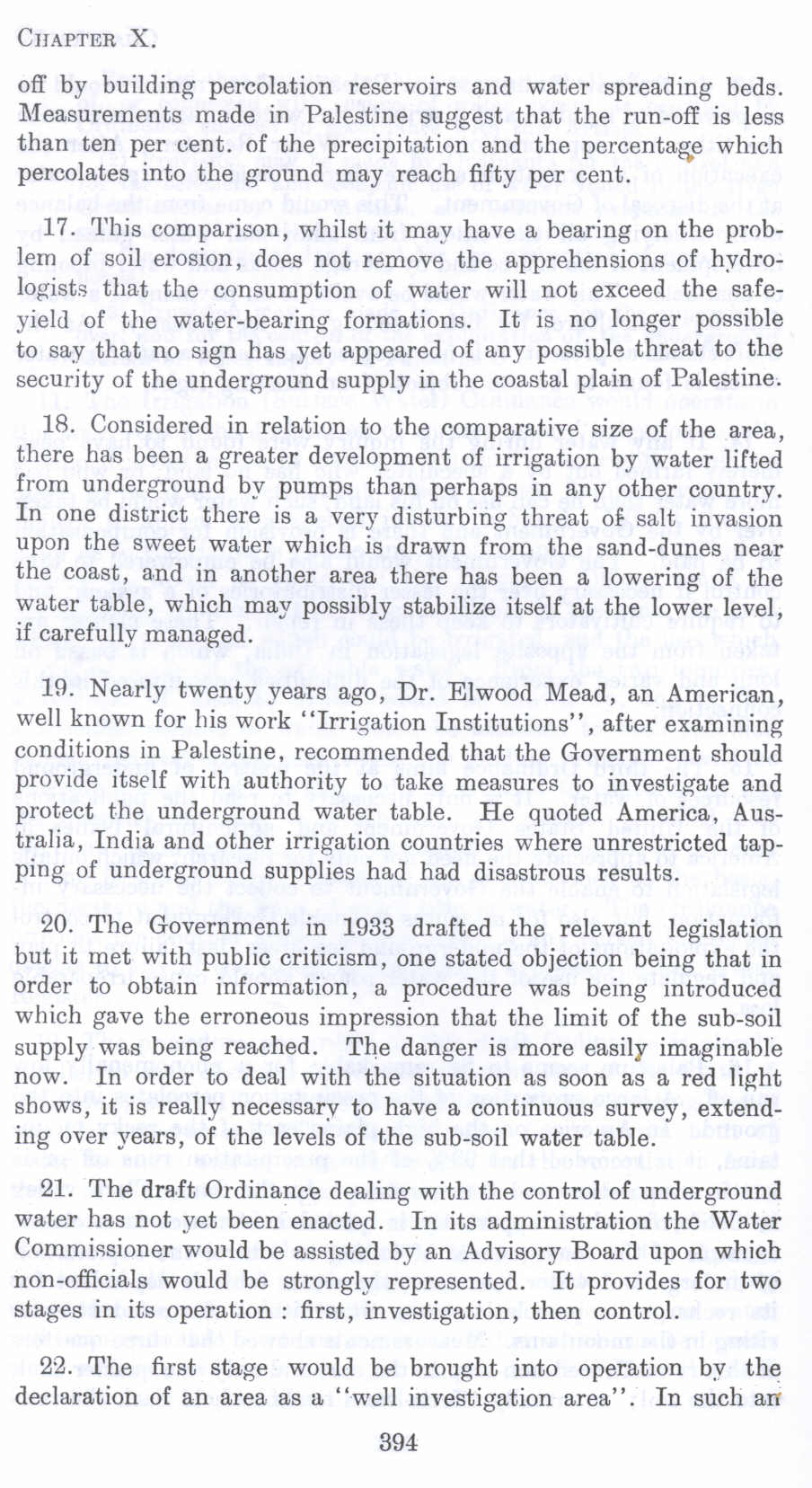| Prev | Next |  |
| Prev | Next |
| PalestineRemembered | About Us | Oral History | العربية | |
| Pictures | Zionist FAQs | Haavara | Maps | |
| Search |
| Camps |
| Districts |
| Acre |
| Baysan |
| Beersheba |
| Bethlehem |
| Gaza |
| Haifa |
| Hebron |
| Jaffa |
| Jericho |
| Jerusalem |
| Jinin |
| Nablus |
| Nazareth |
| Ramallah |
| al-Ramla |
| Safad |
| Tiberias |
| Tulkarm |
| Donate |
| Contact |
| Profile |
| Videos |
British Mandate: A Survey of Palestine: Volume I - Page 394 |
Disclaimer
The above documents, article, interviews, movies, podcasts, or stories reflects solely the research and opinions of its authors. PalestineRemembered.com makes its best effort to validate its contents.


Post Your Comment
*It should be NOTED that your email address won't be shared, and all communications between members will be routed via the website's mail server.
off by building percolation reservoirs and water spreading beds. Measurements made in Palestine suggest that the run-off is less than ten per cent. of the precipitation and the percentage which percolates into the ground may reach fifty per cent.
17. This comparison, whilst it may have a bearing on the problem of soil erosion, does not remove the apprehensions of hydrologists that the consumption of water will not exceed the safe yield of the water-bearing formations. It is no longer possible to say that no sign has yet appeared of any possible threat to the security of the underground supply in the coastal plain of Palestine.
18. Considered in relation to the comparative size of the area, there has been a greater development of irrigation by water lifted from underground by pumps than perhaps in any other country. In one district there is a very disturbing threat of salt invasion upon the sweet water which is drawn from the sand-dunes near the coast, and in another area there has been a lowering of the water table, which may possibly stabilize itself at the lower level, if carefully managed.
Hl. Nearly twenty years ago, Dr. Elwood Mead, an American, well known for his work "Irrigation Institutions", after examining conditions in Palestine, recommended that the Government should provide itself with authority to take measures to investigate and protect the underground water table. He quoted America, Australia, India and other irrigation countries where unrestricted tapping of underground supplies had had disastrous results.
20. The Government in 1933 drafted the relevant legislation but it met with public criticism, one stated objection being that in order to obtain information, a procedure was being introduced which gave the erroneous impression that the limit of the sub-soil supply was being reached. The danger is more easily imaginable now. In order to deal with the situation as soon as a red light shows, it is really necessary to have a continuous survey, extending over years, of the levels of the sub-soil water table.
21. The draft Ordinance dealing with the control of underground water has not yet been enacted. In its administration the Water Commissioner would be assisted by an Advisory Board upon which non-officials would be strongly represented. It provides for two stages in its operation : first, investigation, then control.
22. The first stage would be brought into operation by the declaration of an area as u "well investigation area". In such an
Page 394